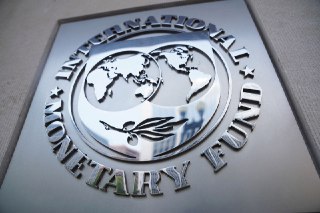The Federal Government has been encouraged by the International Monetary Fund to fulfil its pledge to end fuel subsidies by the middle of 2023.
According to the IMF, in order to establish the necessary policy space, secure the public debt, and lessen risks, the government must implement ambitious fiscal reforms.
This was revealed on Wednesday by the Washington-based lender in a document titled “IMF Executive Board Concludes 2022 Article IV Consultation with Nigeria” that was posted online.
It noted that despite higher oil prices, it was predicted that the country’s fiscal deficit had grown even more in 2022, primarily as a result of high fuel subsidy expenses. Furthermore, while the current account may have improved in 2022 due to pressure from capital outflows, foreign currency reserves actually decreased.
According to the report, Nigeria has missed out on the opportunity to reap the benefits from higher global oil prices in 2022. It said the government needs to take decisive fiscal and monetary tightening to secure macroeconomic stability, combined with structural reforms to improve governance, strengthen the agricultural sector, and boost inclusive, sustainable growth.
IMF Forecasts 3.2% GDP Growth In Nigeria
The IMF said, “Directors highlighted the need for bold fiscal reforms to create needed policy space, put public debt on sound footing, and reduce vulnerabilities.
“They urged the authorities to deliver on their commitment to remove fuel subsidies by mid-2023, and to increase well-targeted social spending. Strengthening revenue mobilization, including through tax administration reforms, expanding the tax automation system and strengthening taxpayer segmentation, and improving tax compliance is also a priority.
“In the medium term, Directors recommended modernizing customs administration, rationalising tax incentives, and raising tax rates to the levels of the Economic Community of West African States.”
The global lender further said the Nigerian economy had recouped the output losses sustained during the COVID-19 pandemic supported by favourable oil prices and buoyant consumption activities. It added despite this, the spill over effects of the war in Ukraine, have resulted in higher domestic food prices, worsening the scarring effects of the pandemic, particularly on the most vulnerable Nigerians.
This is not the first time the IMF would be advising the Federal Government to remove fuel subsidy. In its 2022 Article IV report, it said, “Directors also urged the removal of untargeted fuel subsidies, with compensatory measures for the poor and transparent use of saved resources.
“They stressed the importance of further strengthening social safety nets.”
Follow us on Facebook
Post Disclaimer
The opinions, beliefs and viewpoints expressed by the author and forum participants on this website do not necessarily reflect the opinions, beliefs and viewpoints of Anaedo Online or official policies of the Anaedo Online.

